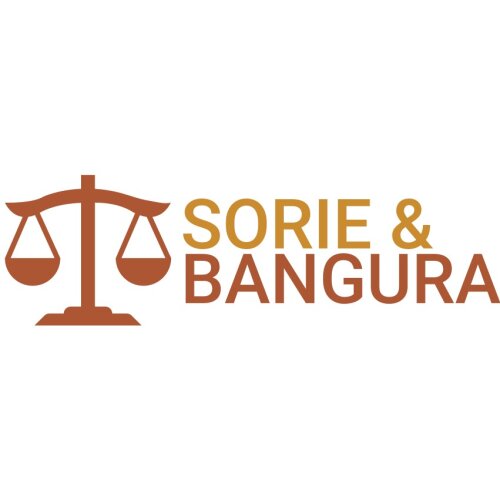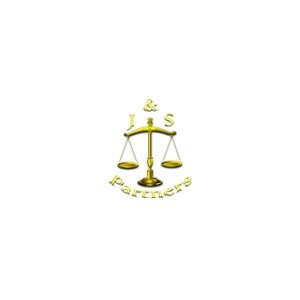Best Commercial Real Estate Lawyers in Freetown
Share your needs with us, get contacted by law firms.
Free. Takes 2 min.
Free Guide to Hiring a Real Estate Lawyer
List of the best lawyers in Freetown, Sierra Leone
About Commercial Real Estate Law in Freetown, Sierra Leone
Commercial real estate in Freetown, Sierra Leone, presents a dynamic and evolving market landscape. The capital city serves as a hub for business activity, driven by economic growth and foreign investment. In this context, commercial real estate refers to property used solely for business or investment purposes - including offices, retail spaces, industrial facilities, and land intended for business development. Legal aspects entail a complex mixture of local property laws, lease agreements, zoning regulations, and transaction processes, making it crucial to have informed guidance when navigating this arena.
Why You May Need a Lawyer
There are numerous situations in which individuals or businesses may require legal assistance in the realm of commercial real estate:
Property Acquisition or Sale: Legal advice is essential when buying or selling real estate to ensure compliance with laws and avoid disputes.
Lease Agreements: Crafting, reviewing, or negotiating lease terms for commercial space requires specialized legal insight.
Zoning and Land Use: Lawyers can provide guidance on zoning restrictions and assist in obtaining necessary permits.
Dispute Resolution: When disputes arise concerning property boundaries, lease violations, or contract fulfillment, legal representation is crucial to resolve issues effectively.
Financing and Investment: Structuring real estate investment deals or securing financing involves complicated legal and financial instruments that require expert handling.
Local Laws Overview
Commercial real estate in Freetown is governed by a set of local regulations and customary laws that impact transactions, property rights, and development:
Statutory Land Law: Governs land tenure, transfer, and property rights, crucial for any transaction or development plans.
The Business Registration Act: Businesses must be duly registered before acquiring or leasing property for commercial use.
Zoning Regulations: Local ordinances dictate allowable land use, impacting the development of commercial properties and their permissible functions.
Environmental Regulations: Environmental standards must be adhered to, particularly in developments that could impact local ecosystems or communities.
Frequently Asked Questions
What is the first step in buying commercial property in Freetown?
The first step is conducting a thorough market research and consultation with a legal professional experienced in local real estate laws to understand the implications and opportunities.
How long does it take to complete a commercial real estate transaction?
The duration varies depending on the complexity of the deal, due diligence required, and regulatory requirements, but it typically spans several weeks to months.
Are there restrictions on foreign ownership of commercial property?
Although foreign investment is encouraged, there may be restrictions or additional steps required for foreign nationals to acquire property, necessitating legal advice.
What documents are essential in a commercial lease agreement?
Key documents include the lease agreement, proof of ownership, business registration certificates, and any regulatory compliance documents.
How do zoning laws affect commercial real estate development?
Zoning laws determine how land can be used and any restrictions on developments, influencing site selection and future use of the property.
Can existing structures be modified for a new use?
Modifications may be possible, subject to compliance with zoning laws and obtaining necessary permits from the relevant authorities.
Is environmental assessment necessary for commercial real estate development?
Yes, depending on the scale and impact of the development, an environmental assessment may be mandated to ensure compliance with environmental protections.
What are the common reasons for disputes in commercial real estate?
Disputes often arise from boundary issues, lease violations, unmet contractual obligations, or disagreement over property usage.
How can property disputes be resolved?
Resolution can involve negotiation, mediation, arbitration, or litigation in courts, often requiring legal representation.
What role do real estate agents play in commercial property transactions?
Real estate agents facilitate property listings, negotiations, and can offer market insights, though legal matters should be handled by legal professionals.
Additional Resources
For further assistance, individuals can contact the following governmental bodies and organizations:
- The Ministry of Lands, Housing, and Environment: Oversees land policies, permits, and environmental regulations.
- Sierra Leone Investment and Export Promotion Agency (SLIEPA): Provides support for foreign investment and business setup.
- Local Bar Associations: Offer resources for finding qualified legal professionals in real estate law.
Next Steps
If you require legal assistance in commercial real estate, consider the following steps:
Consultation: Reach out to a legal expert specializing in commercial real estate to discuss your specific needs.
Documentation: Gather all necessary documents and information to facilitate your legal consultation.
Engagement: Hire a qualified lawyer to represent your interests in property transactions or disputes.
Education: Stay informed about changes in local laws and market conditions through reputable sources and legal updates.
Lawzana helps you find the best lawyers and law firms in Freetown through a curated and pre-screened list of qualified legal professionals. Our platform offers rankings and detailed profiles of attorneys and law firms, allowing you to compare based on practice areas, including Commercial Real Estate, experience, and client feedback.
Each profile includes a description of the firm's areas of practice, client reviews, team members and partners, year of establishment, spoken languages, office locations, contact information, social media presence, and any published articles or resources. Most firms on our platform speak English and are experienced in both local and international legal matters.
Get a quote from top-rated law firms in Freetown, Sierra Leone — quickly, securely, and without unnecessary hassle.
Disclaimer:
The information provided on this page is for general informational purposes only and does not constitute legal advice. While we strive to ensure the accuracy and relevance of the content, legal information may change over time, and interpretations of the law can vary. You should always consult with a qualified legal professional for advice specific to your situation.
We disclaim all liability for actions taken or not taken based on the content of this page. If you believe any information is incorrect or outdated, please contact us, and we will review and update it where appropriate.













